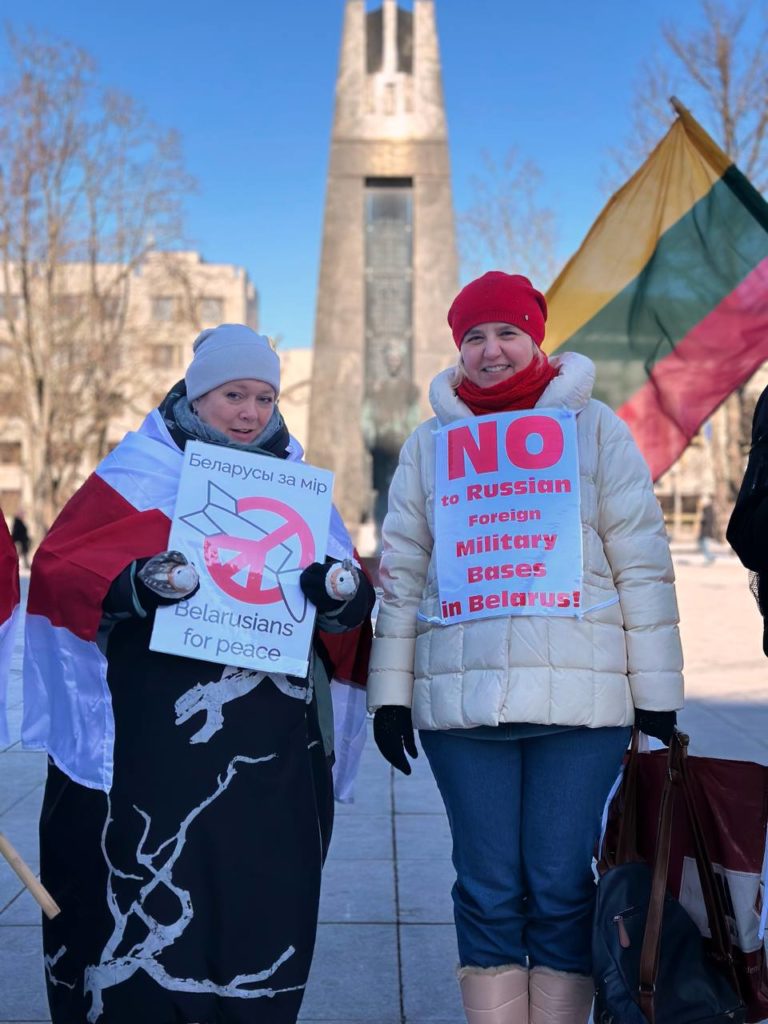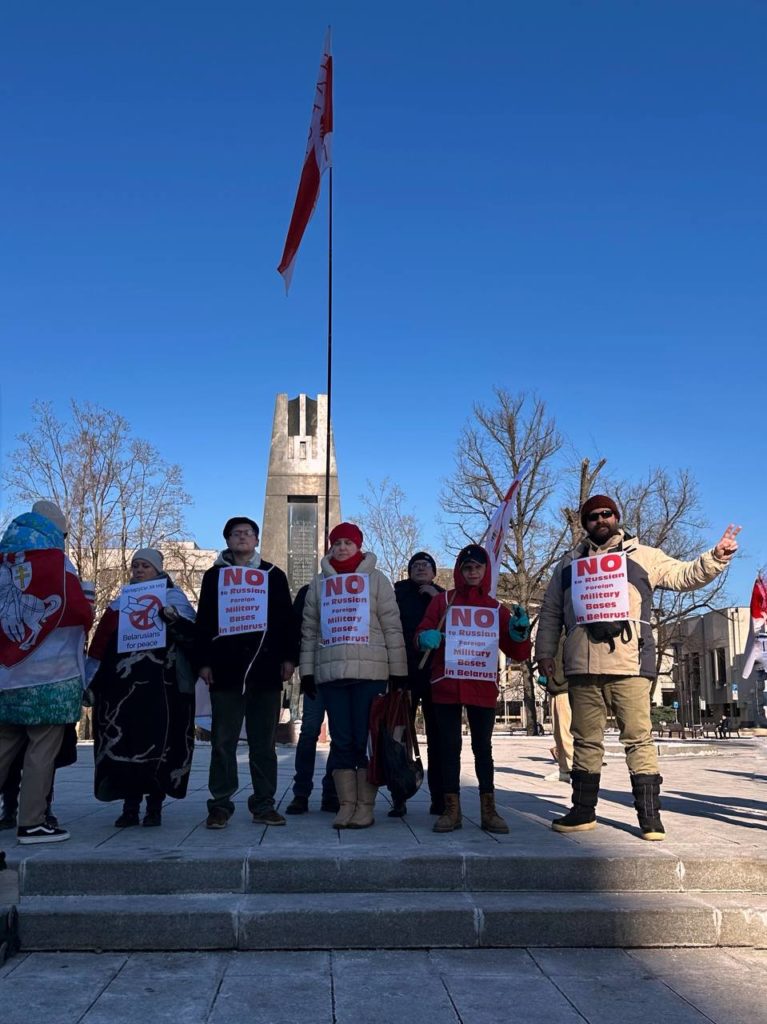On February 23, 2025, at Kudirki Square in Vilnius, a protest was held, organized by Belarusian organizations in exile – Our House, Dapamoga, and other initiatives. The event, which began precisely at 13:00, gathered approximately 25–30 participants who voiced their opposition to the presence of Russian foreign military bases in the Republic of Belarus.

Context and Objectives of the Event
This protest is part of the Global Day of Action to Close Foreign Military Bases, organized by several international anti-war organizations such as WBW, WRI, and others. The demonstration aims to draw attention to issues related to militarization, threats to Belarusian sovereignty, environmental degradation, and social injustice, which, according to the activists, are exacerbated by the presence of foreign military installations in Belarus.
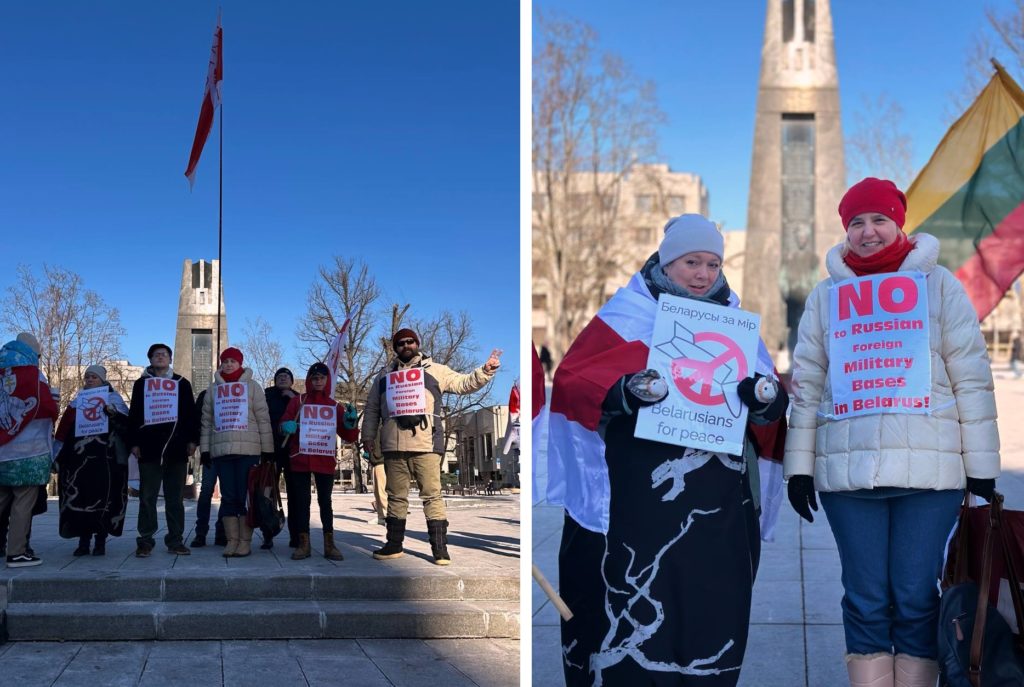
The main points raised by the participants include:
- Military Instability:
Russian foreign military bases in Belarus, according to the protesters, contribute to the growth of militarization by provoking escalating tensions not only in the region but also in the international community. The increase in military activity may lead to unpredictable consequences for the security of the entire region, especially in light of the military events in Ukraine. - Threat to Belarusian Sovereignty:
The presence of foreign military bases undermines the independence and ability of Belarus to independently determine its foreign and domestic policies. Russian military influence through these installations restricts the capacity of Belarusian authorities to pursue an independent policy, calling into question the country’s right to sovereign development and self-determination. - Environmental Risks:
Military installations are traditionally associated with air, land, and water pollution, as well as high levels of noise pollution. These factors negatively affect the state of the environment, which is especially concerning against the backdrop of modern ecological challenges. - Social Injustice:
The presence of foreign military bases often results in the local population being relegated to a status of secondary citizens. Restrictions and dismissive attitudes toward them only exacerbate social inequality and create the conditions for further conflicts.
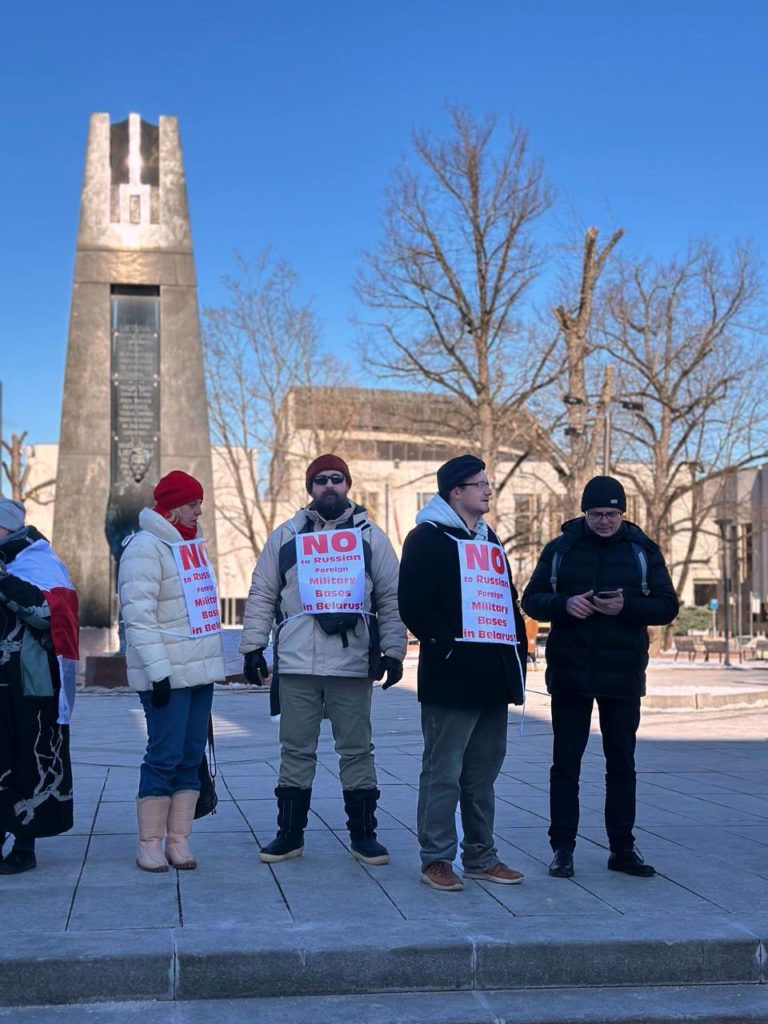
Threats to Belarusian Sovereignty: An Expanded Analysis
Political Independence in Question
Russian military bases located on the territory of Belarus are often perceived as instruments for amplifying Moscow’s influence over the country’s internal and external political decisions. Such a presence can restrict the ability of Belarusian authorities to pursue an independent policy, as key strategic decisions fall under the sway of external forces. Forced involvement in military alliances or participation in operations that do not serve national interests may result from this influence.
Economic and Infrastructural Dependency
Military presence is accompanied not only by political but also by economic influence. The development of infrastructure related to military installations often comes at the expense of civil projects and priorities. Limited resources may be reallocated in favor of the military sector, further weakening the country’s economic independence. This distribution of budget and investments jeopardizes the development of an independent national economy.
Socio-Cultural Aspects
Belarusian sovereignty is also affected in the socio-cultural sphere. The forced imposition of foreign military standards and practices can contribute to the erosion of national traditions and cultural values. The local population, when confronted with the presence of foreign military forces, risks losing its sense of identity, which leads to internal social tension and may cause public discontent.
Legal Aspect
The presence of foreign military bases in Belarus creates legal conflicts when the norms of international law and domestic legislation collide. The violation of the principles of national sovereignty and the right to self-determination may lead to further legal instability, affecting issues of security, civil rights, and international cooperation.
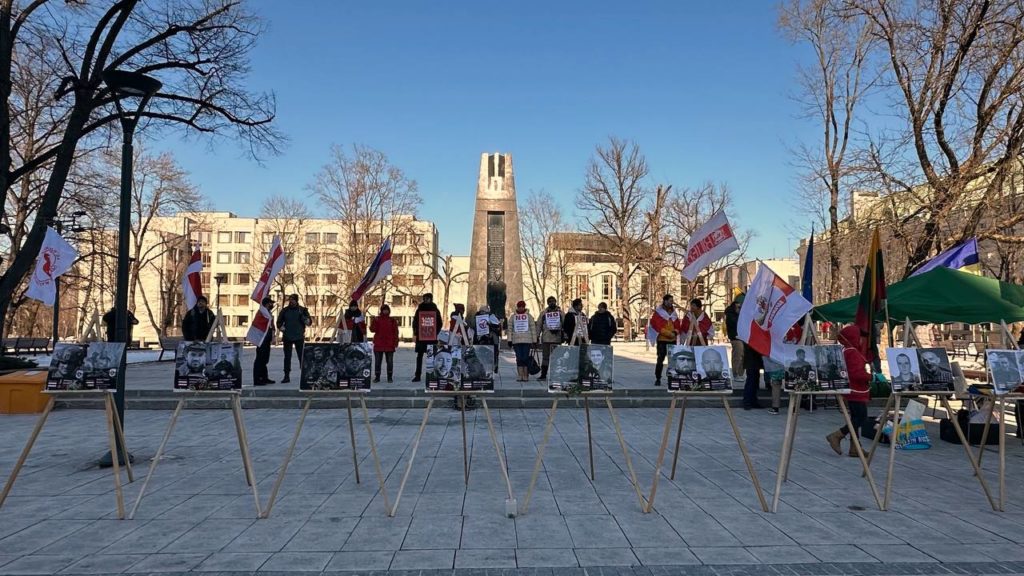
Risks and Challenges: Militarization, Threat to Sovereignty, Environmental Issues, and Social Injustice
Escalation of Militarization
Protesters note that the presence of Russian military bases creates the conditions for further escalation of military activity. Activists warn that such a military presence may provoke retaliatory measures by other states, which, in turn, increases the risk of military conflicts. In the context of global geopolitical changes, this issue requires international attention.
Environmental Threat
Military bases are traditionally associated with high levels of pollution—emissions into the atmosphere, disruption of ecosystems, and noise pollution all inflict damage on the environment. Given modern ecological challenges, such threats demand immediate measures to protect public health and nature.
Social Consequences
Foreign military bases often become symbols of an uneven distribution of resources and power in the region. The local population, living in the shadow of these installations, is deprived of full participation in the life of the country, which leads to increased social inequality and the intensification of internal conflicts.
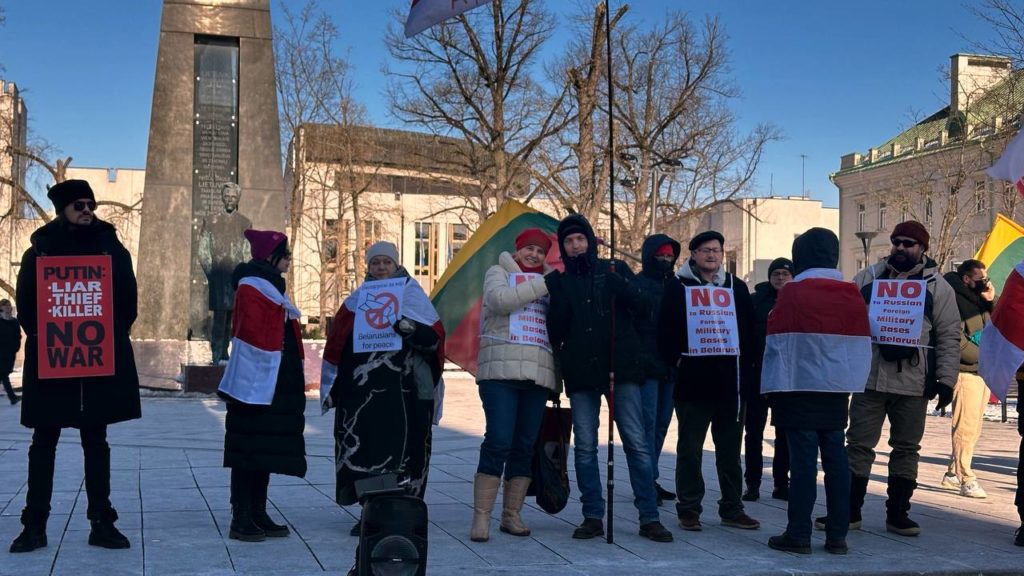
Perspectives and International Response
The event in Vilnius is not merely a local occurrence but part of a global initiative to close foreign military bases. Amid the growing global trend of militarization, protests like this acquire particular relevance. Activists are convinced that the struggle for security, environmental protection, and human rights must transcend national borders. Even while in exile, Belarusian organizations such as Our House and Dapamoga demonstrate that independent voices can indeed influence the international agenda.
International cooperation and solidarity, as showcased during the Global Day of Action, give hope that such protests can influence decisions toward de-escalating military conflicts, ensuring sovereignty, improving environmental conditions, and restoring social rights. In today’s climate of geopolitical uncertainty, it is important not only to discuss these issues but also to develop practical measures aimed at reducing militarization and strengthening national sovereignty.
Conclusion
The February 23 event in Vilnius was a striking example of how people, despite being forcibly exiled, continue to defend their views and rights. The protest against Russian foreign military bases in Belarus unites activists who are concerned not only about the future of Belarus but also about the global community at large. Special attention is given to the threat to Belarusian sovereignty, as the country’s independence and right to self-determination are the cornerstones for the development of a stable and just society.
Such actions remind us of the necessity of collective efforts in striving for a safer, more environmentally sustainable, and just world. Photographs from this event can be found on the Our House website, once again underscoring the reality and scale of a protest movement capable of influencing the global agenda and defending the rights to sovereignty and independence.
